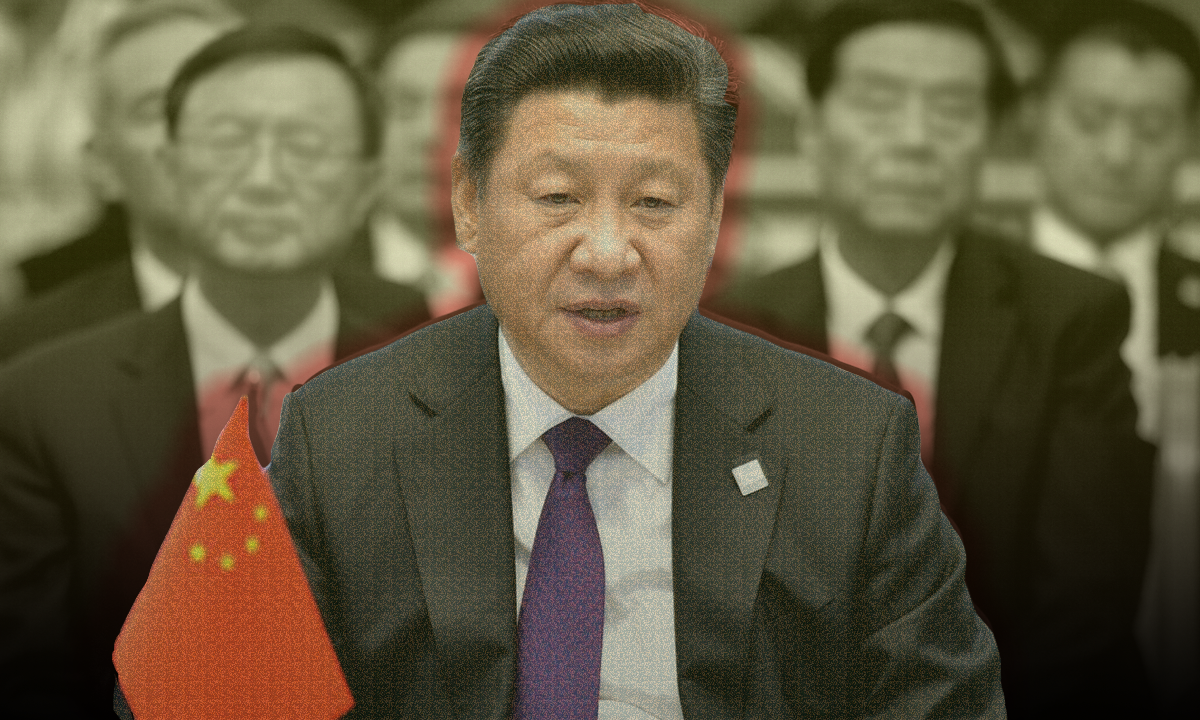In almost every political science class I took in university, my professors would admiringly tell us China was on its way to being the next global superpower.
“Whatever you say,” I would think to myself, with a shrug.
But with more information coming to light about how China has mishandled the coronavirus pandemic – and the possibility that the virus leaked from a bioweapons lab in Wuhan – I have become awakened to China’s place on the world stage, and irked by their authoritarianism, aggressiveness and lies.
As Conservative leader Andrew Scheer noted on Sunday, “It’s becoming more and more clear we cannot depend on China as a reliable ally, as a partner in our values. We need to rethink our relationship with China.”
We cannot trust China. Here are 8 reasons why:

Faulty personal protective equipment
Within the past few days, China sent Canada 100,000 coronavirus test swabs contaminated with mould, and the City of Toronto similarly received 200,000 faulty medical masks that were “ripping and tearing.”
Canada is not the only country receiving faulty equipment: the Netherlands recalled 600,000 improperly fitted masks last month, and microbiologists from Spain allege China sent them coronavirus tests that failed to detect positive cases 70% of the time.

Espionage and infiltration of our electoral system
Canadian and American intelligence experts have marked China as one of Canada’s largest national security threats. Individuals acting on behalf of the Chinese government have waged cyber-espionage campaigns on Canada and its allies in the recent past.
Chinese telecom mega-corporation Huawei has raised red flags worldwide due to its alleged relationship with the Chinese government. According to Chinese legislation from 2017, corporations within the country are required to cooperate with state intelligence operations. Canada’s key allies have repeatedly warned our government to exclude Huawei from our 5G network.
According to the Globe and Mail, a report from the National Intelligence and Security Committee warned that foreign actors, largely from China, have been trying to manipulate politicians, students, the media, and post-secondary institutions for their own strategic ends. The report alleges China has been deploying its citizens and students within Canada to conduct clandestine intelligence-gathering activities to undermine Canadian sovereignty and democracy.

Importation of fentanyl
A 2018 investigation by Global News revealed that British Columbia’s fentanyl trade is largely directed by a gang based in mainland China. In 2016, BC declared the opioid crisis a public health emergency, as thousands in the province have lost their lives due to drug toxicity and overdose.
According to Global News, “Canadian law enforcement agencies have found that fentanyl and its chemical precursors are mostly produced in southern China factories and sent to North America via shipping containers, and in the mail.”
Sending fentanyl in the mail is relatively easy for these laboratories in China. Maclean’s reports “Because fentanyl is so powerful, with just 30 g containing enough for 15,000 potentially fatal doses, these laboratories can easily ship bulk quantities of drugs through the mail.”

The capture and imprisonment of Canadian citizens
Canadian citizens Michael Kovrig and Michael Spavor have been unlawfully detained at the hands of the Chinese regime for nearly 500 days. Kovrig and Spavor were accused of stealing state secrets, but their detainment has widely been seen as retaliation for the arrest of Huawei CFO Meng Wanzhou, who is wanted by the US for violating international trade sanctions with Iran.
While being held captive, Kovrig and Spavor have been denied the ability to talk to lawyers or to their families and are thought to be in solitary confinement, where all the lights are turned off and they are subject to continuous interrogation. Meanwhile, Meng enjoys the luxury of her multi-million dollar properties in Vancouver during her house arrest.
In a Hill Times op-ed published in January 2019, Lu Shaye, formerly China’s ambassador to Canada, accused Canada of “white supremacy” and “western egotism” for demanding the release of Kovrig and Spavor.
The authoritarian rule of Xi Jinping
Ever since President Xi Jinping assumed office in 2012, he has dialed up state surveillance, instituted a social credit system, and abolished term limits.
Beijing-based human rights lawyer Yu Wensheng wrote in an open letter, “The Chinese Communist Party speaks about freedom, democracy, equality and rule of law, but actually China has no freedom, no democracy, no equality, no rule of law. The elite and the rich are in power and corruption is everywhere.”
The Chinese regime uses facial recognition databases so that citizens can be tracked virtually everywhere they go, and over one hundred million Chinese citizens have downloaded the “Study Xi, Strong Nation” app that gives users points for reading and watching videos containing party propaganda. The app also allegedly provides the government with all of the user’s phone data.
Moreover, in 2018 President Xi changed the country’s constitution to abolish two-consecutive-term limits, so that he will be able to rule China indefinitely.

Intolerance of religious minorities
Freedom of religion is enshrined in the Canadian Charter of Rights and Freedoms. But in China, religious minorities are subject to intense surveillance and thrown into internment camps.
International human rights organizations such as Amnesty International have condemned China’s treatment of the Uyghurs, a Muslim community native to northwestern China. Estimates state that one to two million innocent Uyghurs have been detained in reeducation camps within the Xinjiang region. Victims say they have been subject to torture and other brutal means of control. The Chinese government has not taken any responsibility for these crimes.
Other religious minorities have also experienced China’s authoritarian suppression – members of the Falun Gong and Christian populations of China have been imprisoned for their beliefs. Falun Gong members have even had their organs harvested and trafficked.

Bullying of neighbours
In 2019, the people of Hong Kong revolted against a proposed bill that would have allowed criminal suspects to be extradited to mainland China, where they could face harsher sentences and be accused of vague crimes. Because Hong Kong is an autonomous region, they currently benefit from stronger protections for freedom of expression and freedom of assembly.
Demonstrations became increasingly violent. In a report, Amnesty International stated that Hong Kong police acted recklessly and used “retaliatory violence” against protesters, resulting in protesters being subject to broken bones and internal bleeding.
In defiance of international laws, China has displayed military dominance in the South China Sea. Though the South China Sea is disputed territory among surrounding Asian nations, part of China’s strategy has been to create artificial islands to exert geopolitical dominance. All of these have been challenged by the United States and other world powers due to their flagrant disregard for international agreements. China’s military posturing has created hostility particularly with Taiwan and has caused destabilization in the area.

Coronavirus cover-up
From early on in the coronavirus pandemic timeline, officials from within the Chinese communist party failed to disclose the seriousness of the outbreak in Wuhan. The brave medical personnel that first sounded alarms about the outbreak of a respiratory disease in the region were persecuted and harassed by the government.
Furthermore, China’s coronavirus statistics are unreliable. Several governments, including those of the UK and US, have expressed doubt over China’s coronavirus data.





















